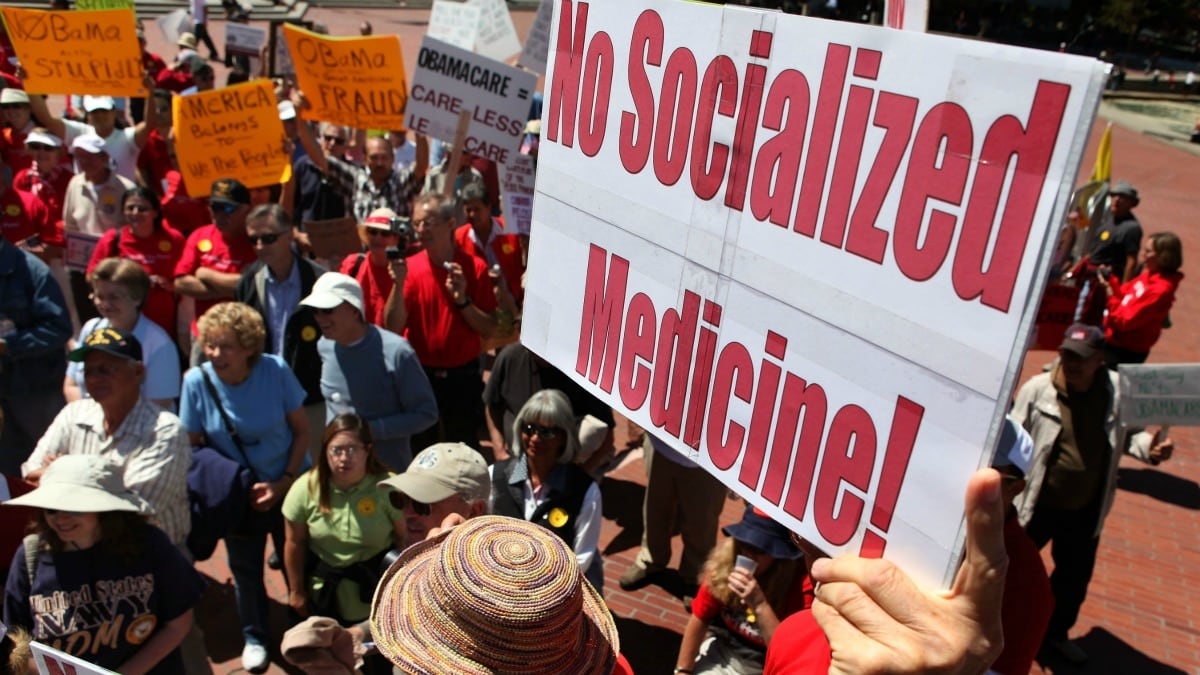
Unfortunately, it's not a unique personal quirk of David Mamet's to answer questions that nobody is asking.
Through the crisis that erupted in 2007, much of the conservative intellectual world has done the same. It's as if our policy debate has been an extended version of those Keynes-Hayek raps that went viral in 2010 and 2011. There's the John Maynard Keynes character arguing for fiscal stimulus to jolt the economy out of a liquidity trap. And countering him is a Friedrich Hayek character arguing against central planning—as if that had any relevance to anything anybody is saying today.
Contemporary conservative spokespersons delight in arguing against socialism at the highest level of abstraction. The queue forms around the block for people who want to advance a "moral case for capitalism." Yet capitalism vs. non-capitalism is not the debate, not in America anyway. The debate here ranges over subjects like:
* How do we avoid a lost decade of slow growth and high unemployment?
* What can be done to improve middle-class incomes after long years of stagnation?
* How do we prevent rising health care costs from impoverishing families and wrecking government finances?
* How do we improve the life chances of the young people coming of age in this time of economic difficulty?
All these questions are raised within the context of an almost universal national commitment to market economics. If we didn't live in a market economy, these questions wouldn't arise in the first place. To answer them by invoking the superior merits of capitalism over socialism is like an auto mechanic answering questions about a malfunctioning car by launching into a speech about the superiority of the automobile over the horse as a means of conveyance.
And yet that is the discussion that so many on the right insist on having, not only by playwrights, but from economists, politicians, and think-tank presidents as well.
—More to Come—




